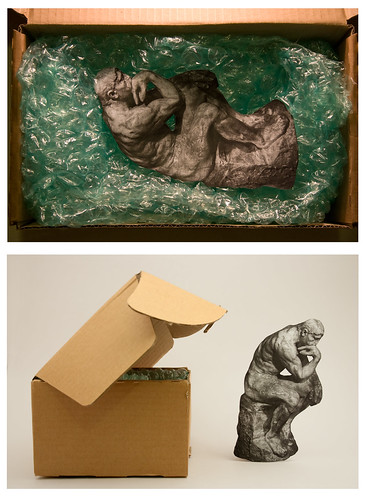Why old books smell so good
by Celeste Ng
You know how you go into a rare books library, or maybe an old used bookstore, and you step between the shelves and take a deep breath and there it is: that incredible old-book smell. To me, it always smells like leather and caramel and dust and sunlight, all blended together. Turns out, there’s a scientific answer (as well as a teleoogical one) for just why old books smell so damn good: This sign might be on to something. Smell is the scent most strongly tied to memory, and in my dreams (the real, I’m-asleep ones) I’m often combing the […]


























